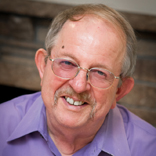 Leslie A. Muray is Professor of Philosophy and Religion at Curry College. We invited him to answer the question “What does philosophy of religion offer to the modern university?” as part of our “Philosophers of Religion on Philosophy of Religion” series.
Leslie A. Muray is Professor of Philosophy and Religion at Curry College. We invited him to answer the question “What does philosophy of religion offer to the modern university?” as part of our “Philosophers of Religion on Philosophy of Religion” series.
In my ruminations below, I am dealing with philosophy of religion not as it is practiced and taught in modern universities but where I think it needs to be and what it needs to do. As such, much like Robert C. Neville and John B. Cobb, Jr., I do not draw a sharp distinction between philosophy of religion and theology.
Unlike the preoccupations of the dominant analytical school of philosophy, I see philosophy as a practical wisdom for living. Whitehead’s vision of speculative philosophy resembling the flight of an airplane, beginning on the ground below, soaring to the heights above, coming back and landing on the ground provides a powerful image of this. In other words, philosophy begins with lived experience, reflects on it, and returns and illumines lived experience.
Philosophy as practical wisdom for living is preeminently critical thinking. In the words of my department’s stated goals, “For any course in Philosophy or Religion at Curry College, the fundamental objective is: to demonstrate the ability to step back from commonly held beliefs, examine and assess those beliefs as well as alternatives to them, and determine the consequences of adopting any of those beliefs.”
The definition of religion from the Latin roots with which I want to work translates as “to bind together.” At its best, this is a unity that does not obliterate diversity and pluralism but rather affirms them. If one applies this vision of unity to the modern university, instead of unity, one sees the fragmentation of the disciplines, symptomatic of the fragmentation of modern life.
In my vision of the role of philosophy of religion (and theology) in the university, philosophy of religion would seek to bring the disciplines together in wrestling with issues of importance (such as climate change). Holistic yet affirming distinctiveness, philosophy of religion would truly thrive as practical wisdom for living.
